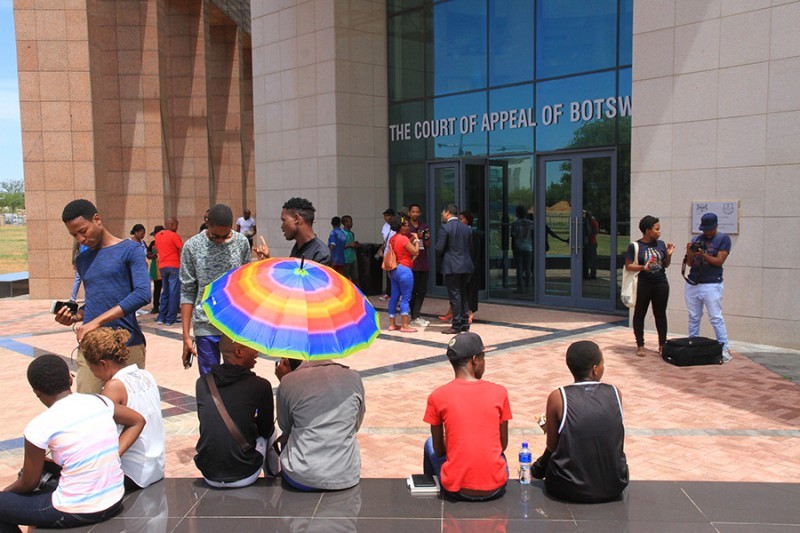'Unfair laws expose LGBTIQ Community to violence'
Ame Motimane | Monday March 18, 2019 14:08


LEGABIBO, who appeared on Thursday before a three bench of the High Court as a friend to the proceedings, says studies conducted in the country have shown that the gay community is more prone to violence than any other group. The constitutional case that was between Letsweletse Motshidiemang, a gay man who was challenging the government’s criminalisation of same sex consensual relations between consenting adults saw LEGABIBO backing his challenge with studies carried out as to why the government needs to change its laws on same sex relations and repel sections 164(a) (c) and 167 of the Botswana Penal Code.
The provisions in the sections criminalise same sex sexual conduct between consenting adults in Botswana and impose a maximum sentence of seven years imprisonment. Lawyer Tshiamo Rantao in his submissions argued that the reason why the gay community is often assaulted was mainly due to the fact that the government enables the violence and assault towards homosexuals.“The law is an enabler, it gives leverage to people that assaulting a gay person is totally lawful and that cannot continue. The gay community is a minority and they cannot be allowed to suffer any further,” he said.Rantao challenged the constitutionality of sections 164(a) (c) and 167 saying it does not make sense that the government wants to regulate what transpires in people’s bedrooms.
He explained that according to studies carried out, which the government was part of, it has since shown that the law on its own increases the risk of HIV and other sexually transmitted infections within the gay community, as they are often discouraged from seeking help from health officials.
“Homosexuals have reported that the treatment they get from health officials was appalling as they are considered to be doing something outside the norm and this discourages them from seeking help,” he said.
Further in an emotionally charged argument, Rantao was appalled that the state was saying in their papers that foreign western bodies that want to impose their immorality in the country financed LEGABIBO. He said it was wrong and an insult for the state to say that, especially coming from a senior counsel. Gosego Lekgowe, lawyer for Motshidiemang also argued that when the law was made to criminalise same sex relations the society was not ready to accept homosexuals, but now was the time to change the law as society has changed. He submitted that the society has become more tolerant of the LGBTIQ community.
“Consenting adults must have the liberty to do whatever it is that they want as long as it does not interfere with anyone’s rights and is not of public interest,” he said.
Lekgowe argued that it was inhumane and degrading for Parliament to have interest in what transpires in people’s bedrooms, especially between two consenting adults.
Lekgowe on argument about morality said it had nothing to do with decriminalising same sex relations more so that it had got nothing to do with the public.
He questioned why the public would have anything to say about what happens in someone else’s private space.
Meanwhile, on the defence of the state was advocate Sidney Pilane, who started by saying that he would rather die before seeing same sex relations decriminalised.
He spoke about Motshidiemang commending his bravery, but insisted that his case was not about homosexuals and the Penal Code but was about public morality and that he was strictly speaking for the government.
“For the law to change sometimes there has to be evidence that the values of the society have changed, and in this particular case it is about what the people want and their values, the law should reflect on the values of the society,” he said.
Pilane argued that there has not been any change in society towards gay people and when it comes to the people Parliament knows better.
He said that the courts should be restrained, should not be allowed to play God and should respect people even those who are not educated because they too have their set of values and morals. The case was before judges, Abednego Tafa, Jennifer Dube and Michael Leburu and they have reserved judgment to June 11, 2019.
